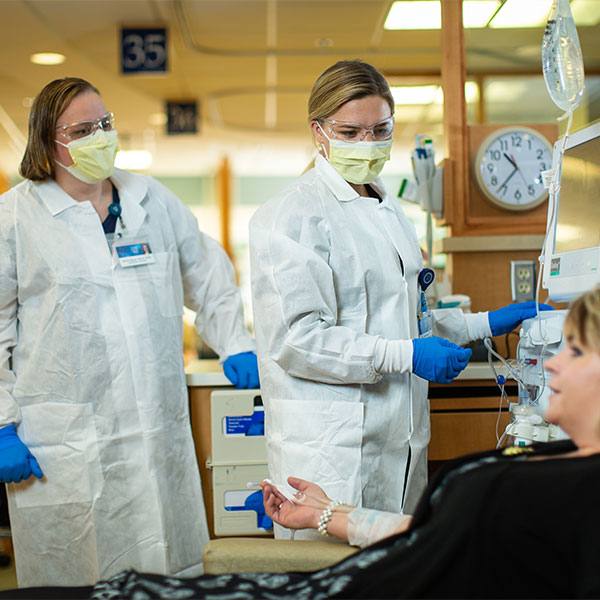-
Biotherapeutics
Mayo Clinic to offer advanced degree in regenerative sciences

Mayo Clinic is launching one of the first-ever doctoral programs in regenerative sciences designed to prepare future physicians and/or scientists for an emerging area of health care. The new track in the Mayo Clinic Graduate School of Biomedical Sciences will encompass the full spectrum of regenerative science and medicine from discovery to translation and application. Isobel Scarisbrick, Ph.D., the newly named program director for the Regenerative Sciences program in the Center for Regenerative Medicine, sees this as an important milestone in advancing the practice.

“This comprehensive track within the Graduate School of Biomedical Sciences will prepare students for a new era of medical sciences focused on rebuilding and restoring health. It underscores Mayo Clinic as the premier and most trusted destination for regenerative sciences education and ultimately regenerative health care,” says Dr. Scarisbrick.
Regenerative medicine shifts the focus from treating disease to restoring health. It is expected to account for 10% of all clinical care within the next decade. To prepare scientists to help meet these needs, Mayo Clinic will launch the new doctoral Graduate Education Track. Taught by a regenerative medicine expert, the curriculum will embrace a training paradigm that includes fundamental cellular and molecular science principles and transdisciplinary education in regulatory issues, quality control, bio-business and entrepreneurial pathways, data science, medical sciences, ethics and emerging technologies.
“We will be able to offer students a cross disciplinary experience in the laboratory and a hands-on approach of translating to the clinic. That’s what makes this so unique,” says Dr. Scarisbrick. “There isn’t going to be one solution for a given problem. We will equip students with the knowledge to be able to draw on those fundamental science principles and then integrate them into the complexities of discovering and implementing a regenerative solution.”
The new track is the culmination of years of work and the vision of Mayo Clinic to forge a new path in regenerative education. The training will be available to graduate students, medical residents and other health care professionals on all Mayo Clinic campuses.

“Regenerative sciences could play a role in healing most, if not all, diseases. Regenerative medicine should be integrated into the teachings of each organ system. An understanding of regenerative sciences will open a plethora of new treatment possibilities,” says Fredric Meyer, M.D., executive dean, Mayo Clinic College of Medicine and Science.
Sharing enthusiasm for learning
Dr. Scarisbrick brings to her new role experience in neuroregeneration research. She directs the Neural Repair Laboratory within the department of Physical Medicine and Rehabilitation where she investigates ways to harness the body’s ability to repair and regenerate the central nervous system.
“We are starting to understand how the nervous system works. We are excited in my lab to discover these principles and try to engage them in disease or injury models to repair and restore function,” says Dr. Scarisbrick. “To be involved in educating others in regenerative sciences and to transfer this enthusiasm and knowledge to next generation scientists is very exciting.”
The regenerative sciences track will complement the broader work Mayo Clinic is leading in educating the workforce of the future. For example, every year Mayo Clinic offers a week-long Regenerative Medicine and Surgery Course. This past year, 88% of the students who attended that selective said they would apply what they learned to their practice. Mayo Clinic is also spearheading an effort to include regenerative sciences training for all medical students in Minnesota by the year 2025.
The first students will be admitted to the new regenerative sciences doctoral track in the Mayo Clinic School of Biomedical Sciences in the fall of 2021. To learn more or to apply, click here.
###







